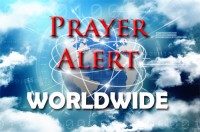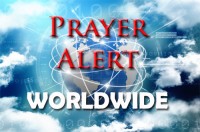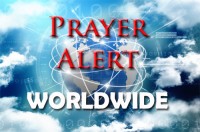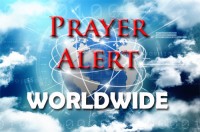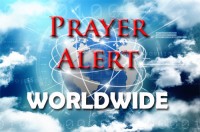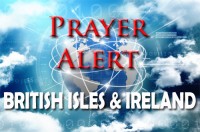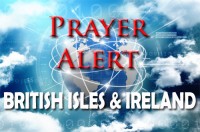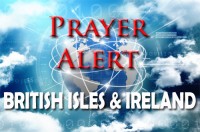Iran: widespread protests
In a few days protests spread across Iran, with demonstrations different in size, leadership and objectives from those in 2009. The protests started in Mashhad, when religious hardliners voiced legitimate economic grievances to score points against the Rouhani government. They lost control of events when corruption and falling living standards prompted political slogans against the Islamic Republic. Next, there were demonstrations praising Rouhani, but the core demonstrators chanted uncompromisingly anti-regime slogans. Many believe these protests are powered by people who tend not to vote, believing the system cannot be reformed. A spokesman for the Revolutionary Guards said that anti-government protests were over, but offered no evidence of how they had been defeated beyond arrests. His comments appeared to be a warning against more rallies. The BBC and Al Jazeera say that protests are still happening.
Israel: prediction of war with Iranian proxies
An Israeli thinktank has warned of several security threats this year. These could include war with Hezbollah or with Syria, supported by other Iranian proxies, or a war with both, with full-blown Iranian involvement. Iran continues to arm and finance proxies near Israel’s borders, and Tehran’s steps to build a military force in Syria may lead to an escalation on the northern front, given the Israeli government’s resolute stance. Noting the presence of Russian forces in Syria, the report said Moscow could be expected to maintain neutrality, but could impose limitations on Israel’s freedom of action. Another potential for a flare-up is in Gaza, where Hamas continues to build its strength. IS presence on Israel’s borders was the third challenge noted.
Morocco: hundreds of protesters still in prison
Activists in a Casablanca prison keep having their court cases postponed. They are affiliated to Hirak, a protest movement that emerged in October 2016 after a fish vendor was crushed to death by a truck as he tried to retrieve fish that authorities had confiscated. See Since that article, however, the government has acknowledged Hirak’s grievances - better infrastructure, jobs and health-care - but hundreds of protesters remain behind bars, 54 of them accused of threatening the internal security of the state. Authorities are also trying seven reporters who covered the protests and commented on religion and religious freedom. The official response to Hirak's demands was to propose building roads, hospitals, and a cancer treatment centre (Moroccans have a high incidence of the disease). When the national human rights council reported human rights violations and torture, the justice minister announced an investigation, but no follow-up has been made public.
Global: a lost childhood in conflict zones
UNICEF has stated, ‘Children are under attack on a shocking scale in conflicts around the world. No safe places are left for children as they are targeted in their homes, schools and playgrounds.’ Last year many children came under attack in conflict zones, with blatant disregard of international laws designed to protect the most vulnerable. They were frontline targets, used as human shields, killed, maimed, and recruited to fight. Rape, forced marriage, abduction, and enslavement were standard tactics. Sometimes children abducted by extremist groups experience abuse yet again upon release when they are detained by security forces. Millions more children are suffering malnutrition, disease and trauma as access to food, water, sanitation and health are denied, damaged or destroyed in the fighting.
North Korea: Christian survival
Every aspect of North Korean life is controlled by the state, which believes that there is no higher authority than Kim Jong-un. Christianity threatens this belief and must be crushed. Tens of thousands of Christians are imprisoned in labour camps, yet the church is growing. There are 300,000 courageous believers, many not even telling their children, who live under constant surveillance by authorities looking for anything that might threaten the regime. There are even rewards of a new home or better job for anyone who helps discover Christians. Every citizen must report to a ‘neighbourhood watch’ system any absence from home, or a neighbour neglecting to clean the portrait of Kim which everyone must have on their walls.
Looking forward to 2018
In 2017 we have witnessed miracles and seen suffering. But as we look ahead to 2018, we remember and proclaim that God is sovereign over every corner of the globe! He alone is the hope of 2018 - the Hope of the Nations. Though some situations may seem hopeless, we recognise and rejoice that He reigns ‘far above all rule and authority, power and dominion, and every title’ and that ‘all things are under His feet’ (Ephesians 1:21,22). Nothing is impossible for Him. ‘The LORD has established His throne in heaven, and His kingdom rules over all’ (Psalm 103:19). Nothing has or ever will usurp His authority and power. He reigns, and He rules over China and Europe, North Korea and Syria, Boko Haram, and IS. He rules over polio, cancer, and hunger. He rules over corporations, celebrities, and sports. He even rules over galaxies, stars, and planets, ‘and calls them each by name’ (Ps. 147:5).
BBC New Year ‘religious resolution’
A BBC review published on 20 December found religious people ‘poorly presented or satirised’ by the corporation, and suggests programming that ‘better reflects the UK’. BBC proposes to include religious themes in popular dramas and soaps on TV and radio, make more documentaries covering religious and ethical issues, and expand its religious affairs team. The ‘Thought for the Day’ slot on Radio 4 will be more closely linked to news items with women and young people. Figures from a wider range of religions will be invited to contribute. Pray that Tony Hall, the BBC’s director general, will remember its religion home page statement: ‘Christianity is the largest religion in the world with over two billion followers. 42 million people in Britain today describe themselves as Christian, and six million are actively practising.’
Friday Focus: reaching out at Christmas
So it is only three days to go until the big day! It can be so easy to be caught up in the frenetic activity, getting everything ready for those we know, that we can often forget those for whom the Christmas season is difficult. Take a moment to ask God to bring someone to mind for whom that is true.
(Jane Holloway, World Prayer Centre)
Christmas, children and divorce
Christmas can be financially or emotionally stressful for some families, ‘I married the wrong person’ can be a cry for help when it comes from a person unable to cope with stresses this time of year. There is a battle over marriages today, and the enemy would love nothing more than to destroy families and damage the children caught up in difficult family relationships. We can pray for social workers and councillors looking after the interests of children involved in family breakdowns, separations or court proceedings. Cafcass is an employer of social workers who look after the interests of children involved in family court proceedings. It reported that in November 2017 it received a total of 3,811 new private cases.
Internet shopping on Christmas Day
The Bishop of Chelmsford has called for a crackdown on internet shopping on Christmas Day, after plans for major sales for that day. Stephen Cottrell said he would support laws to allow only essential services during the Christian festival. Stores such as Amazon, Debenhams, and John Lewis are to launch sales on Christmas Day, slashing prices by up to 66%, and experts predict millions will spend record amounts online. The Bishop said that shopping should not tempt people away from precious time with family and friends over Christmas, and companies should voluntarily postpone their sales. But he added, ‘How you shut down the internet for a day I don’t know, but if anyone has an idea I would certainly back it in the House of Lords.’ In further erosion of Christianity, a survey has found, nearly a third of primary schools have dropped or watered down traditional nativity plays, because of fears of offending non-Christians or non-believers. See the next article.

